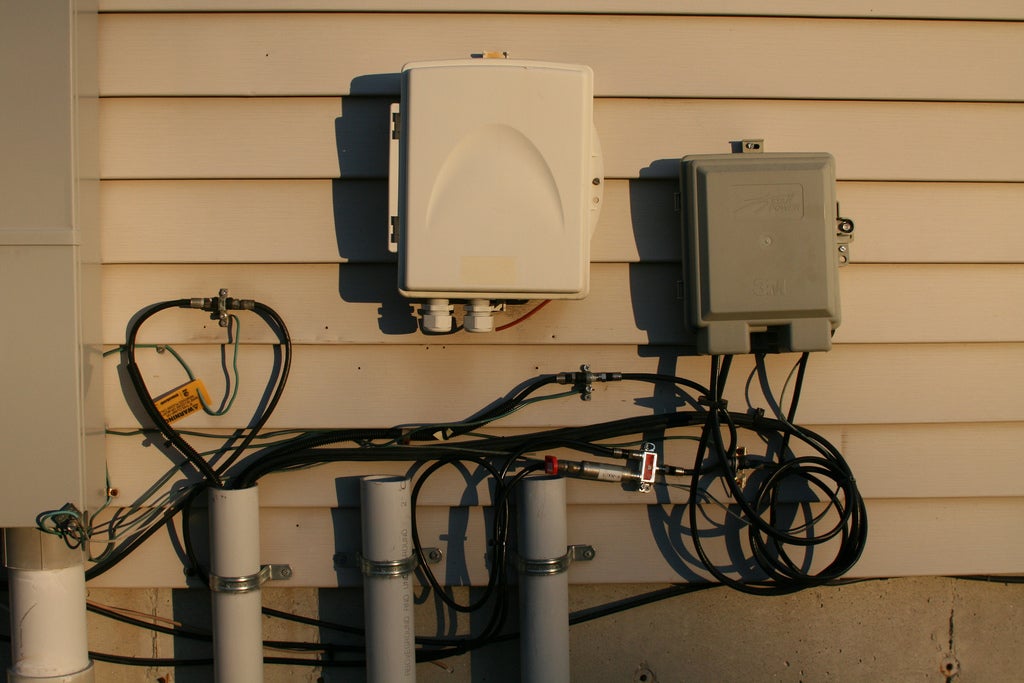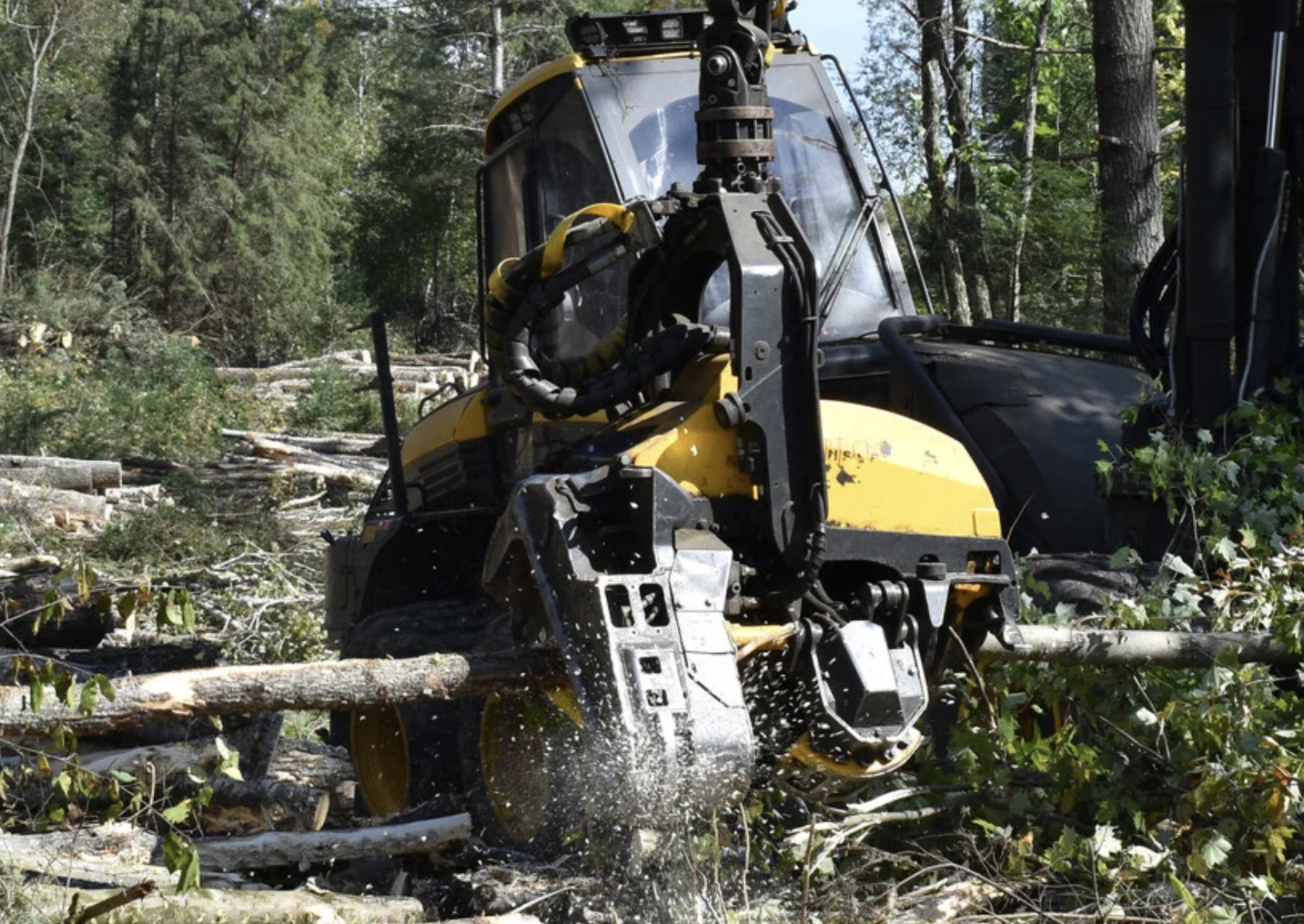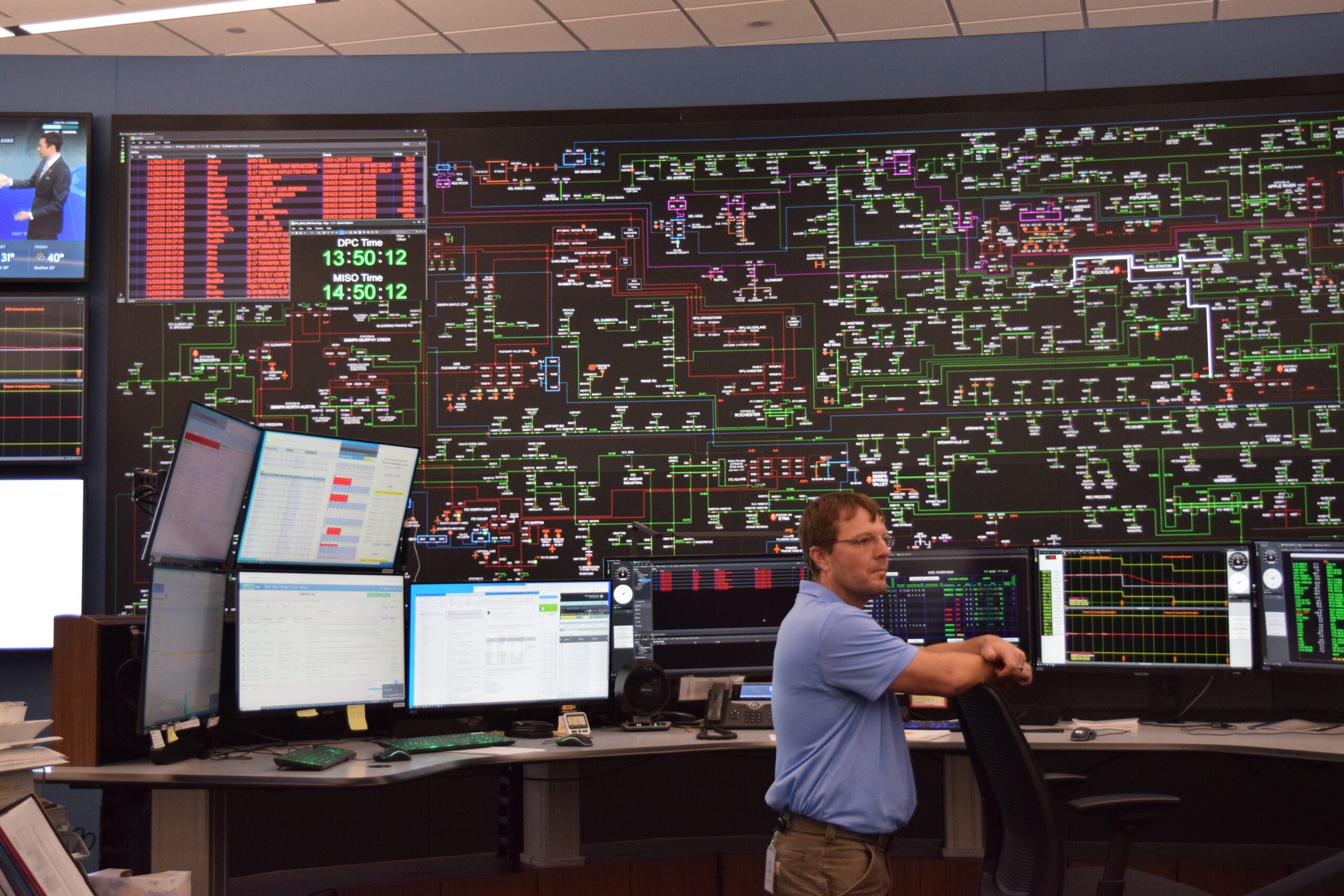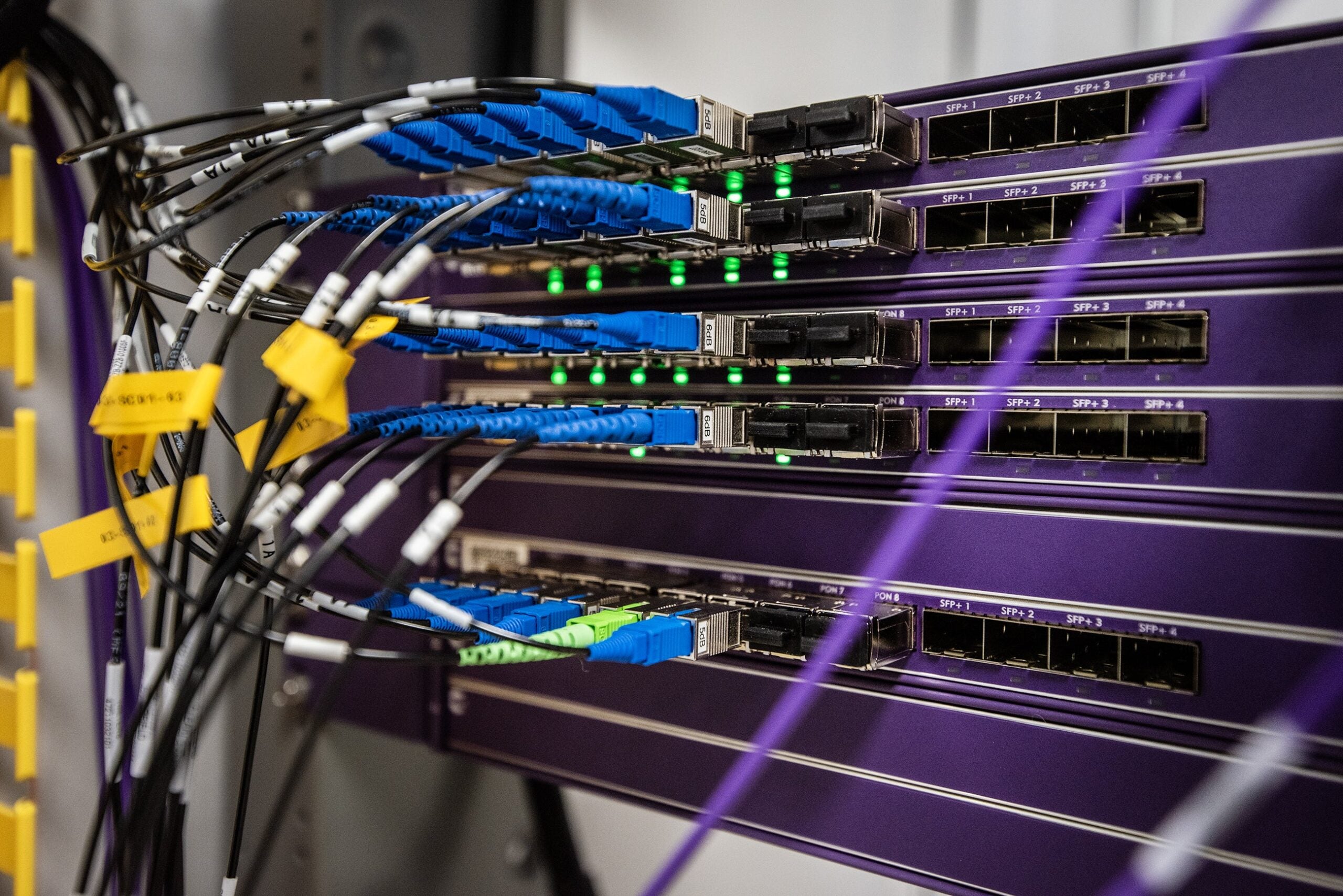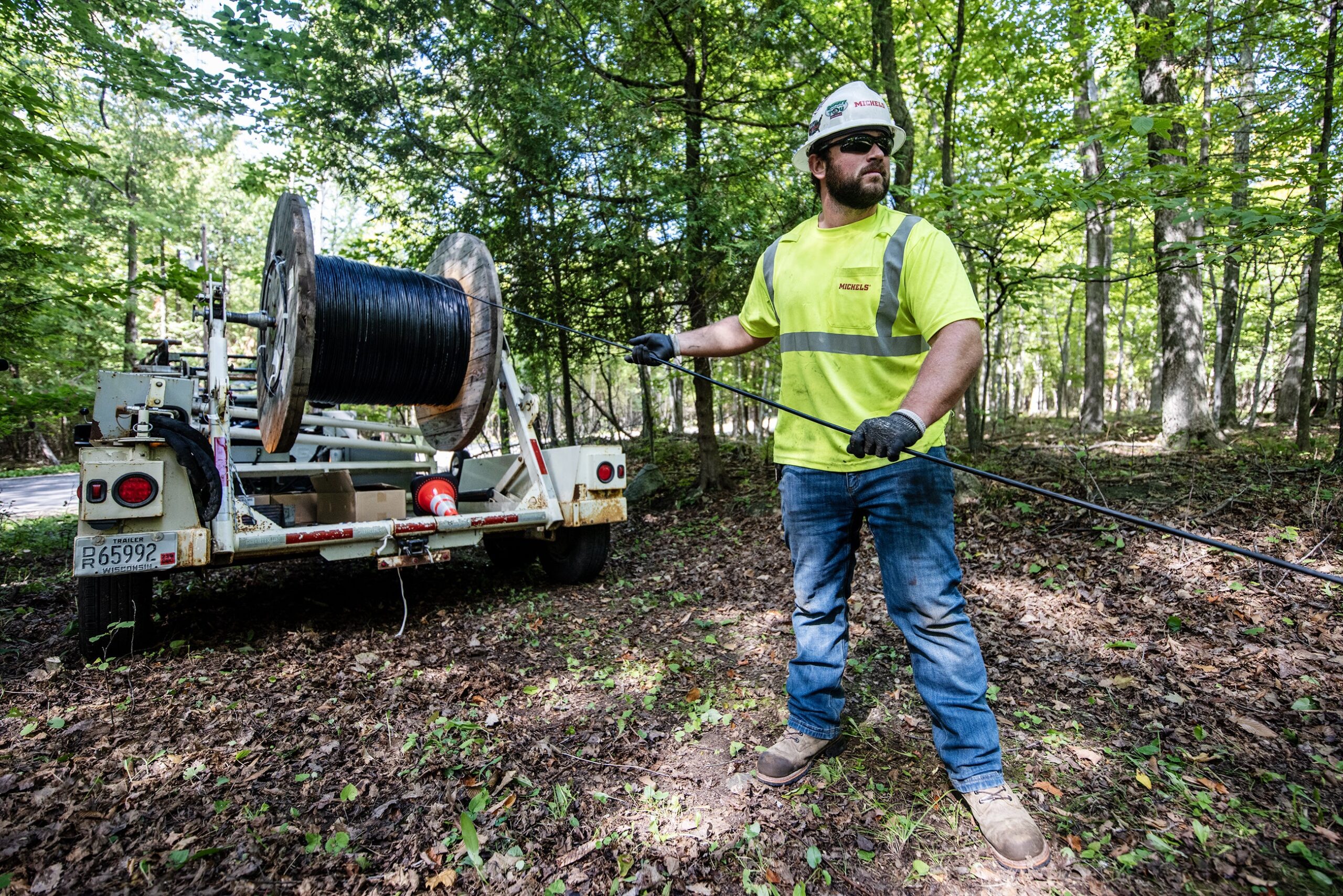Gov. Tony Evers’ budget would invest $78 million in the state’s Broadband Expansion Grant Program. The governor has set a goal to provide all homes and businesses in Wisconsin with high-speed internet by 2025.
Angie Dickison, state broadband director with the Public Service Commission, told WPR’s “The Morning Show” earlier this week that she’s hopeful state lawmakers will sign off on increased funding to expand broadband internet access across the state.
“What if your best or only option for internet access was via Wi-Fi at the local fast food restaurant? We hear that from folks,” Dickison said. “In 2019, broadband access isn’t just nice. It’s necessary.”
Stay informed on the latest news
Sign up for WPR’s email newsletter.
The state’s broadband program awards funding for infrastructure projects to deliver high-speed internet service to Wisconsin communities. Dickison told WPR the program has awarded around $20 million over the span of six years for projects to expand service in 63 counties. The program is improving broadband internet access for 75,664 homes and 4,395 businesses, according to figures provided by the Public Service Commission.
“Our rural communities want better access, and our program is a wonderful way to help build those partnerships between public and private to make our state a connected state,” she said.
A 2018 progress report from the Federal Communications Commission shows around 86 percent of Wisconsin residents have access to broadband internet, which the FCC defines as a fixed download speed of 25 megabits per second and an upload speed of 3 megabits per second. While 99 percent have high-speed internet in urban areas, the FCC reports about 43 percent of people living in rural Wisconsin don’t have access to broadband service.
Dan Corbin, Town of Summit chairman, said the problem is vital for areas of Douglas County in northern Wisconsin.
“We still have people on dial-up,” Corbin said. “We still have dead spots where your mobile phone doesn’t work so you can’t even use hotspots.”
Corbin would like to see his region access grants to improve internet access, and he would also like to see more accountability for providers to ensure they’re producing high-speed internet with grants that have been awarded.
Dickison said the PSC requires grant applicants to report on the status of their project every six months and when they submit for reimbursement of expenses.
Stacey Johnson, executive director of the Oneida County Economic Development Corp., said the program has worked well in her region. The county has been working with internet service provider Northwoods Connect to build towers to expand high-speed internet that will serve around 90 percent of county residents.
“Without connectivity, we’re kind of stagnant. We take a look at what jobs are in the future, everything from transportation to medical and health care — telemedicine — things like this,” she said. “Technology is at the heart of it all.”
Bayfield Democratic Rep. Beth Meyers, who served on the Legislature’s study committee on rural broadband in 2016, agreed investing in broadband infrastructure is necessary to promote economic development and stem the brain drain from rural areas.
“We know that a lot of people want to work from their homes. To be able to do that, they need to have broadband and they need to have cell phone coverage,” Meyers said. “Right now, as we look at expanding broadband to the northland, I think this is an opportunity to recruit younger workers.”
Expanding broadband access in Wisconsin has received bipartisan support in the Legislature, which increased funding for the state’s grant program in the 2017-19 budget. However, Spring Green Republican Sen. Howard Marklein, who chaired the Legislature’s study committee on rural broadband in 2016, said he has reservations about the governor’s proposal to use money from the general fund to expand high-speed internet.
“I’m a little concerned that we might be taking money away from some other high priorities,” Marklein said.
He noted education, health care and transportation remain top priorities for funding in the Legislature.
Marklein said he would like to explore alternative sources of funding to bolster support for the state’s broadband grant program.
Eleva Republican Rep. Warren Petryk, who co-chaired the study committee in 2016, said he’s happy Evers has recognized the need for broadband access in rural areas. Petryk said he’s “cautiously optimistic” lawmakers will be able to provide more funding to expand high-speed internet across the state.
“We will have to take a real gander at this, and I’m hoping they’ll do more than we did last time, especially as all the needs are not filled,” Petryk said. “Certainly, there’s many, many unserved areas of the state.”
Wisconsin Public Radio, © Copyright 2024, Board of Regents of the University of Wisconsin System and Wisconsin Educational Communications Board.


